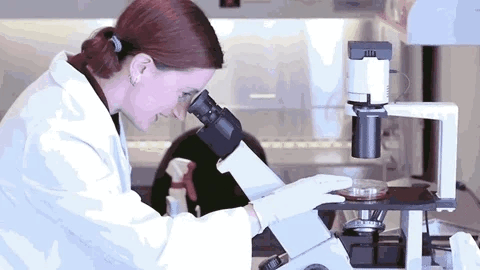
Published on Oct 14, 2024
Last modified on Dec 23, 2025
The Women’s Health Developments We’re Celebrating This World Menopause Month
4 min read
Last week, Elektra had the privilege of tabling at an event in New York City, and as women curiously stopped by our table, we would initiate conversation with an emphatic “Happy World Menopause Month!!” More often than not, this proclamation was met with a knowing chuckle, or a more dubious “yeah right, happy menopause month.” After all, for many of us, waking up in a pool of sweat after an evening of disruptive night sweats, or thera-gunning our muscles that ache for seemingly no reason isn’t our idea of happy. We get it. We’re not trying to sugarcoat or prettify an experience that can be physically and mentally uncomfortable.
When we say “Happy Menopause Month,” we aren’t denying the very real distress that menopause can bring; we’re recognizing the tremendous progress that has been made in this space — progress that will impact the health of our generation and generations to come. We’re celebrating the fact that in the span of only a few years, women have transformed the term “menopause,” from something whispered to something declared. This World Menopause Day, we’re recognizing some key advancements made recently in the menopause space, and what they mean for our health as women.
1. Postmenopausal women who use menopausal hormone therapy for extended periods may have lower rates of heart disease.
At this year’s Menopause Society conference, Dr. Marla Shapiro presented data based on the results of a national study called the Women’s Health Initiative that focuses on strategies for preventing heart disease and certain cancers in postmenopausal women. The study found that while male mortality rates — largely due to heart disease — have decreased, female mortality has increased.
What’s more, the study found that symptomatic postmenopausal women who used menopausal hormone therapy (MHT) for extended periods of time had lower rates of coronary heart disease and mortality than those who don’t use MHT. These findings indicate a need for greater research in women’s cardiovascular health as well as further research into the potential uses of MHT.
READ MORE:
2. Gut health and menopause are intimately connected.
The menopausal transition is associated with lower gut microbiome diversity, including reductions in bacteria that support our digestive functions. This reduction is associated with changes in our immune health, mood, and nutrient absorption — all of which have large roles in determining our overall health.
What can we do about it? Like many things menopause-related, it starts with diet and supporting our gut health through food during the menopause transition. Prioritizing fiber-rich foods and working with healthcare providers to optimize digestion and nutrition can help maintain gut health, and may potentially reduce menopause-related symptoms while supporting our long-term well–being.
“As a menopause practitioner, I’ve seen firsthand how optimizing gut health can significantly impact symptoms like bloating, weight changes, and even mood. Supporting the gut is one of the most powerful ways we can enhance overall wellness during this transition.” – Jackie Giannelli, FNP-BC, MSCP
READ MORE:
- Understanding the Connection Between Gut Health and Menopause
- Fiber and Menopause: Here’s What You Should Know
3. Researchers identify a link between early trauma exposure Alzheimer’s disease in women.
A new study presented at the 2024 Menopause Society Conference linked trauma exposure to accelerated brain aging and Alzheimer’s risk in women. Trauma, particularly sexual trauma, was associated with faster aging of white matter in our brains and adverse biomarkers linked to neuroinflammation — or brain swelling. The good news is, early identification of trauma-related Alzheimer’s risk can lead to targeted prevention strategies and improve long-term brain health in women.
READ MORE:
A look to the future…
Health leaders — including menopause health experts — are increasingly discussing the potential use of A.I. for individualizing patient care in medicine. Use cases for the technology include drug discovery, diagnostics and medical imaging, and remote patient monitoring. Some researchers have even referred to the potential use of AI for precision surgery! Of course, these developments take years of trial and refining, but we’re excited about the increasing application of high technology in women’s health research.



